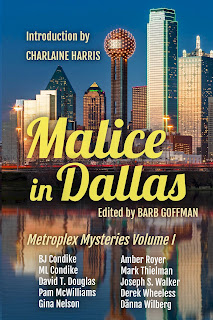I’ve been thinking lately about lawyer archetypes. (I don’t often sit around
musing about Jungian psychology, but I needed to give a short talk on the legal
profession, and one thing sort of led to another.) The topic comes up
occasionally. An internet search leads you to a good CrimeReads article
by Christopher Brown. The American Bar Association devoted an issue of their
magazine to the topic in August 2016.
Every
occupation has its types: doctors, priests, teachers, and even assassins have predictable buckets for fiction and movies. I’m sure accountants and
farmers have them, too. I just haven’t read enough books or seen those
films.
For today’s conversation, I will identify five different types of lawyers. I focus primarily on criminal
practitioners because that’s where I live, but I think the types are equally
applicable to civil law.
#1. The Crusader:
When asked about a lawyer archetype,
this is the one most commonly named.
Think Atticus Finch in To Kill a
Mockingbird. The truth-seeking champion of the downtrodden speaking truth
to power. She can be found seated at either counsel table in the courtroom. The
Crusader may be the prosecutor seeking justice for a traumatized victim
or a defense attorney fighting a lonely battle on behalf of a wrongfully
accused social outcast. She might be a plaintiff’s attorney giving voice to a
powerless litigant suing a giant corporation with a team of deep-rug lawyers. The Crusader doesn’t have to be good
at the job. This type is based on passion, not talent. Although she will have
to find a legal nugget somewhere. Nobody wants to watch/read the story where
the true believer gets steamrolled by the mighty empire unless there is a
twist.
#2 The Shark:
Maybe getting runover enough times
has led to cynicism. The Shark sacrificed early zeal for the pursuit of
wealth. Perhaps the idealism never existed to begin with. The Shark has learned
the courthouse’s back passages and traverses them for his own
enrichment. A reasonable doubt for a reasonable fee.
Sharks represent the profession devoid
of any nobility. Maybe they are skeptical about whether anything like justice
exists, or perhaps the Shark has just become detached, substituting the luxuries
purchased through success for any moral examination.
Perhaps you’ve seen the Shark’s
billboard on your morning commute. They can usually be found near the emergency
room entrance to the hospital.
#3 The Sleazy Drunkard:
Abandon hope all ye who enter here. The
Sharks or The Crusaders might journey down a path leading to Sleazy Drunkard.
Drugs or alcohol might serve as the balm for a Crusader who must
confront frequent disillusionment as the system disappoints and ultimately
crushes him (and his clients). Alternatively, the absence of a moral compass
might lead to unrestrained hedonism. The lawyer’s downward spiral leads to professional
lapses—the decline may be marked by the diminished quality of the Drunkard’s
scotch.
To be fair, perhaps the archetype
should have a slash, Sleazy/Drunkard. This attorney might still dream of
nobility through an alcohol fog or, alternatively, have substance abuse as but
one of a collection of issues, the others more sinister.
Sleazy/Drunkard stories might be
about redemption. Think Paul Newman’s Frank Galvin in The Verdict.
(There are more recent examples, but that’s where my mind went.) The Crusader
who tumbled is resurrected. Alternatively, the story might make the
Sleazy/Drunkard the villain. Clients come to an attorney’s office needing help.
That need makes them vulnerable and subject to exploitation. Every courthouse
I’ve ever worked in has rumors about lawyers who took in-kind payments for
their services. Characters who prey upon the weak in their hour of distress make first-rate villains.
#4 The Buffoon:
My final categories get a bit
muddled. The Buffoon could easily be subdivided into several distinct buckets.
I think that they arise from our shared understanding of courts. We know the
tropes of a courtroom. The lawyer who runs afoul of those established practices
can generate either
laughter or cringes.
J. Cheever Loophole, played by Groucho
Marx, might mock the theater of the
courtroom with an over-the-top portrayal.
John Gibbons, the public defender in My Cousin Vinny, might set up Joe
Pesci through his ineptitude. We know what they’re doing or failing to do because we have learned through books and movies what to expect from a
courtroom.
The Buffoon might also just be very
bad at his job. There is an element of talent, experience, and instinct
in a successful attorney, just as in any other profession. A case in the hands of a
Buffoon might produce an unjust outcome. The story might, therefore, set the
stage for vigilante action to balance the scales. Every revenge story is about
righting an unpunished wrong. #5 The Pettifogger
This type takes the conversation in
a different direction. To this point, the types have been more about degrees of
cynicism toward the criminal justice system. The Pettifogger may fall anywhere
along the scale. This is a classification based on tactics.
By etymology, the Pettifogger may
seem synonymous with the Shark, the Drunkard, or the Buffoon, depending on
where the emphasis lies. A combination of “petty” (small) and “fogger,” an
obsolete Dutch expression for a cheater. (You might think of an English
profanity that sounds something like it.)
A pettifogger became a “small cheat,” a substandard practitioner of law.
One who handles only small cases or employs questionable methods, according to
the website Lexico.
Instead, I’ve seen the name employed and use it here to describe the attorney who makes every question a struggle,
every point a battleground. To illustrate, consider the following exchange.
Lawyer #1: “Tell the Court your name.”
Pettifogger: “May I take the witness
on voir dire?”
Judge: “Briefly.”
Pettifogger: “How do you know your
name?”
Witness: “My parents called me that.”
Pettifogger: “Objection, hearsay. No
personal knowledge of the fact.”
And with that, the bloodletting
begins.
I’ll hasten to add that there is a
place for focusing on the details in court. Witnesses may want to describe
with broad strokes and attention to the specifics is how inconsistencies may be
reconciled and conflicts resolved. Reasonable doubt is created in the details.
Excessive focus on every detail, perhaps using the pain of court to deter
seeking an appropriate legal remedy, creates the world where “lawyer” becomes a
pejorative.
We’ve split the lawyering world into
five classes. You might find other categories as you look across the expanse of
fiction. We might also think about how these categories affect fiction. That
will have to be a topic for another day.
Until next time.




.jpg)







.jpg)



.jpg)

















